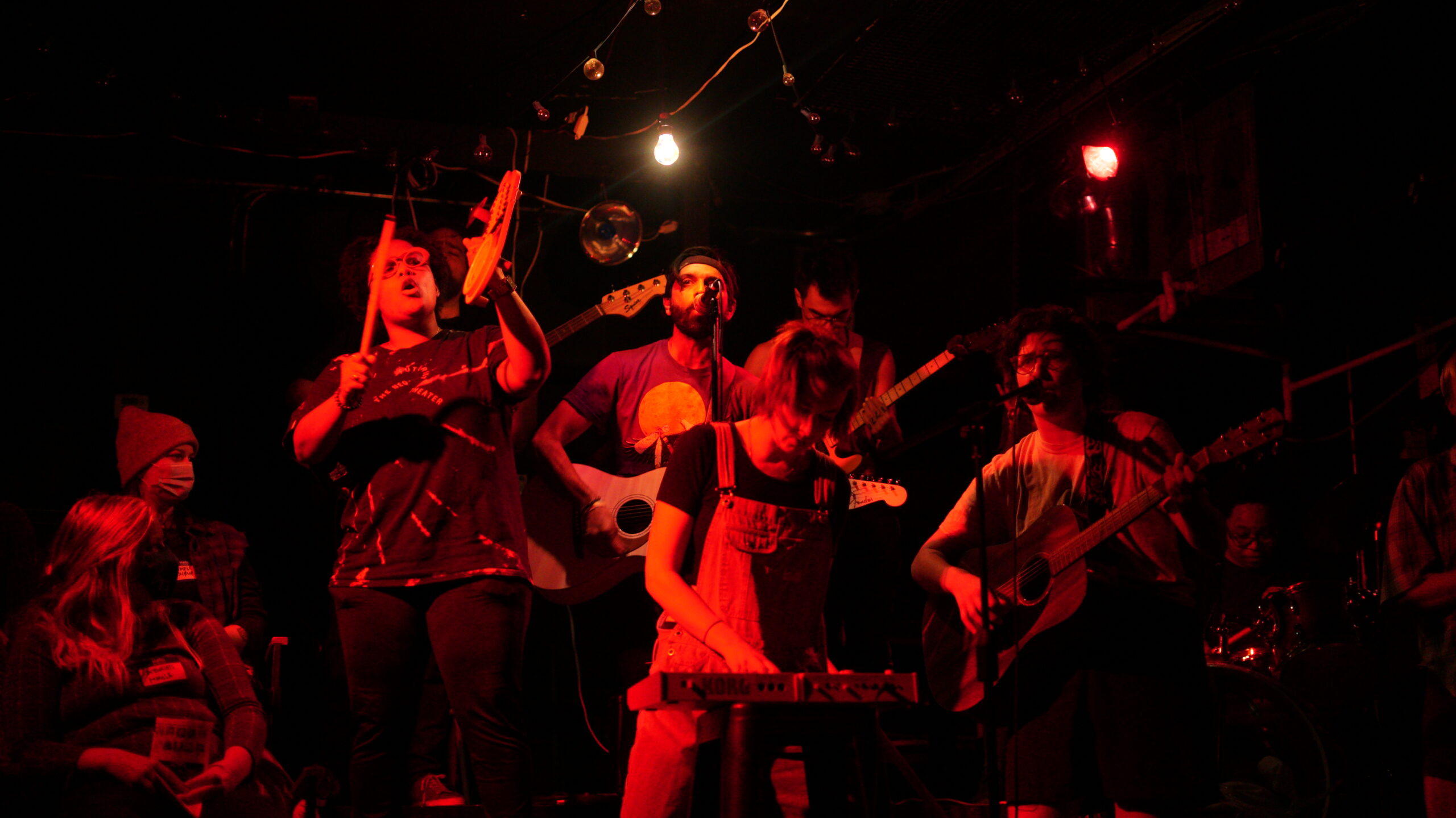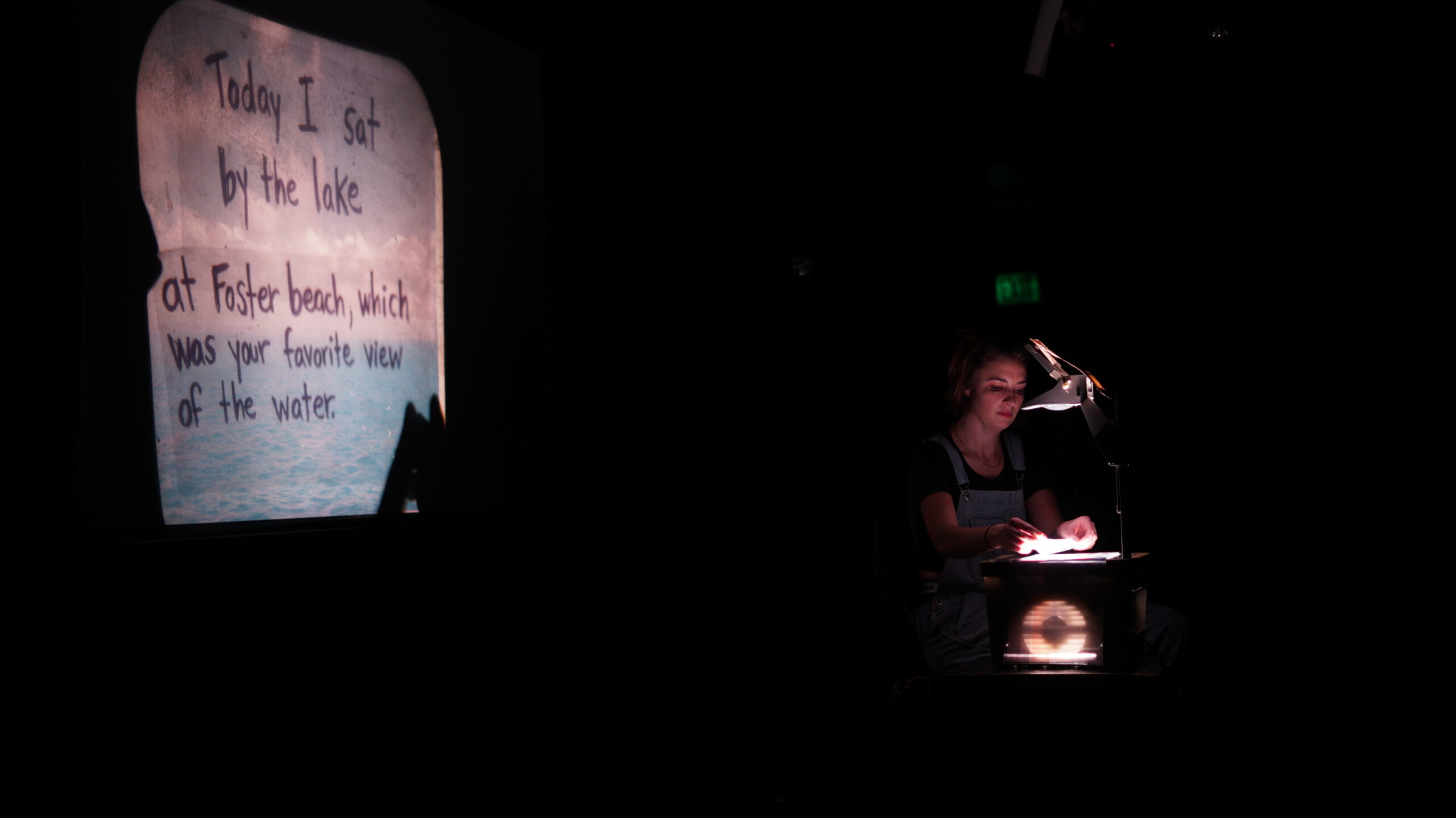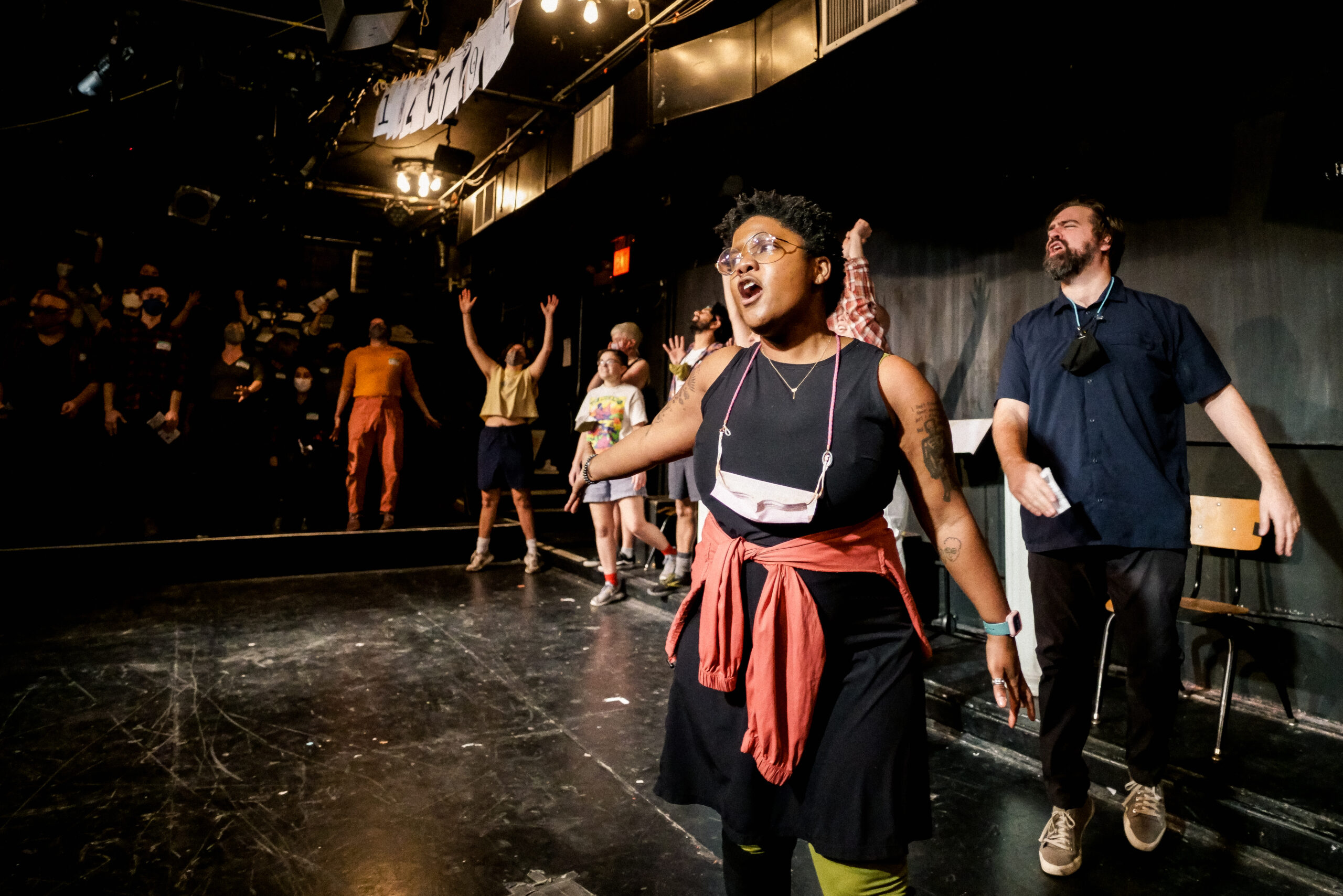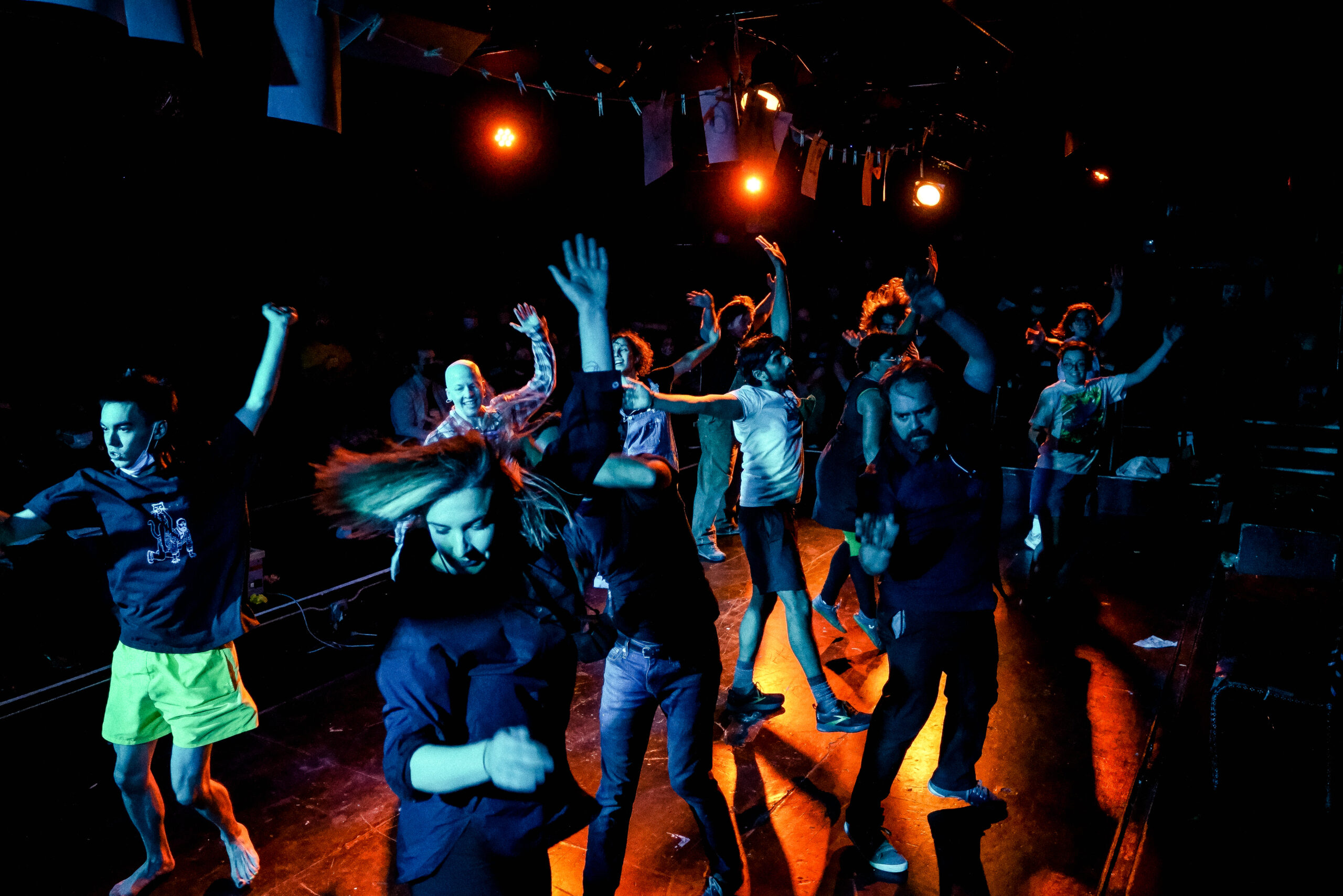Since 1988, the Chicago experimental theater troupe, The Neo-Futurists, has been pushing the boundaries of the theatrical arts and connecting with audiences in new ways that never cease to surprise and delight. Thoughtfully scripted but with the directness and spontaneity of improv, Neo-Futurist shows are postmodern experiential whirlwinds of emotion that defy expectations.
True to their name, The Neo-Futurists abide by the principles of neo-futurism, which is a type of multi-faceted theatre that, according to their website, is “built on a belief in truthful, direct communication between the performer and the audience.” Actors “perform honest, immediate theatre grounded in their personal experiences and perspectives… [a] fusion of sport, poetry and living-newspaper.” The work the troupe performs is not aimed “to ‘suspend the audience’s disbelief,’ but to create a world where the stage is a continuation of daily life.”
It’s part surrealism, part absurdism, and all topical and timely.

Theatre reviewer Emma Durbin provided an ideal example of the cast’s neo-futurist work in an article in Rescripted: “My favorite skit of all time was by Ensemble Member Leah Urzendowski, who kicked, punched, and stomped on a diagram of a vulva; a disturbingly accurate depiction of what it felt like to bike the gravel section of Clark Street between Foster and Montrose when it was under construction pre-pandemic. I have never laughed so hard in my life.”
The best example of The Neo-Futurists’ combined work is their ensemble performance, The Infinite Wrench, where audiences see 30 original two-minute plays written by the cast within 60 minutes—and the plays change every week to address current events and personal developments in (almost) real-time. And because each performance engages audience feedback by calling out random numbers, which determines which of the mini-plays will be performed at that moment, no two performances are alike. When the timer goes off, the cast moves quickly to the next play, which may be a very different genre than the last.

It’s easy to imagine The Infinite Wrench is so named because of all the “wrenches” being thrown in the performance. The mini-plays are funny, heartrending, political, and sometimes downright bizarre, yet the emotional connection with the audience is so sincere in each that even when genres and subjects are switched abruptly from one play to the next, they flow more seamlessly than one might expect.
The show is performed in a small theatre where the audience seating encompasses the stage on three sides and there’s practically no separation between the audience and the cast. Viewers are warned that choosing to sit in the first two rows is consenting to potentially participating in the skits. Only those seated in the back get the spectator-only experience and even then you’re still close enough to make direct eye contact with the cast, which adds to the intimacy of the storytelling experience.

Even after seeing a show, it’s a struggle for me to articulate the experience to someone who wasn’t there. The easiest way for me to describe it is to say the feeling is similar to watching the 2022 sci-fi adventure indie hit Everything Everywhere All at Once, where a Chinese-American woman simply wants to do the business taxes for the laundromat she and her husband own but keeps getting pulled into alternate realities. Like the film, there are moments in Neo-Futurist shows where you’re shocked and moments where you’re deeply confused, but the overall effect is one of emotional vulnerability and necessity; something that gets to the core of the human experience in a way that goes largely untouched in the world at large.
While there are offshoots of The Neo-Futurists in San Francisco, New York City, and London, the Chicago branch is the originator, making this Italian Futurist-inspired type of theatre as distinctly Midwestern as Italian beef.
